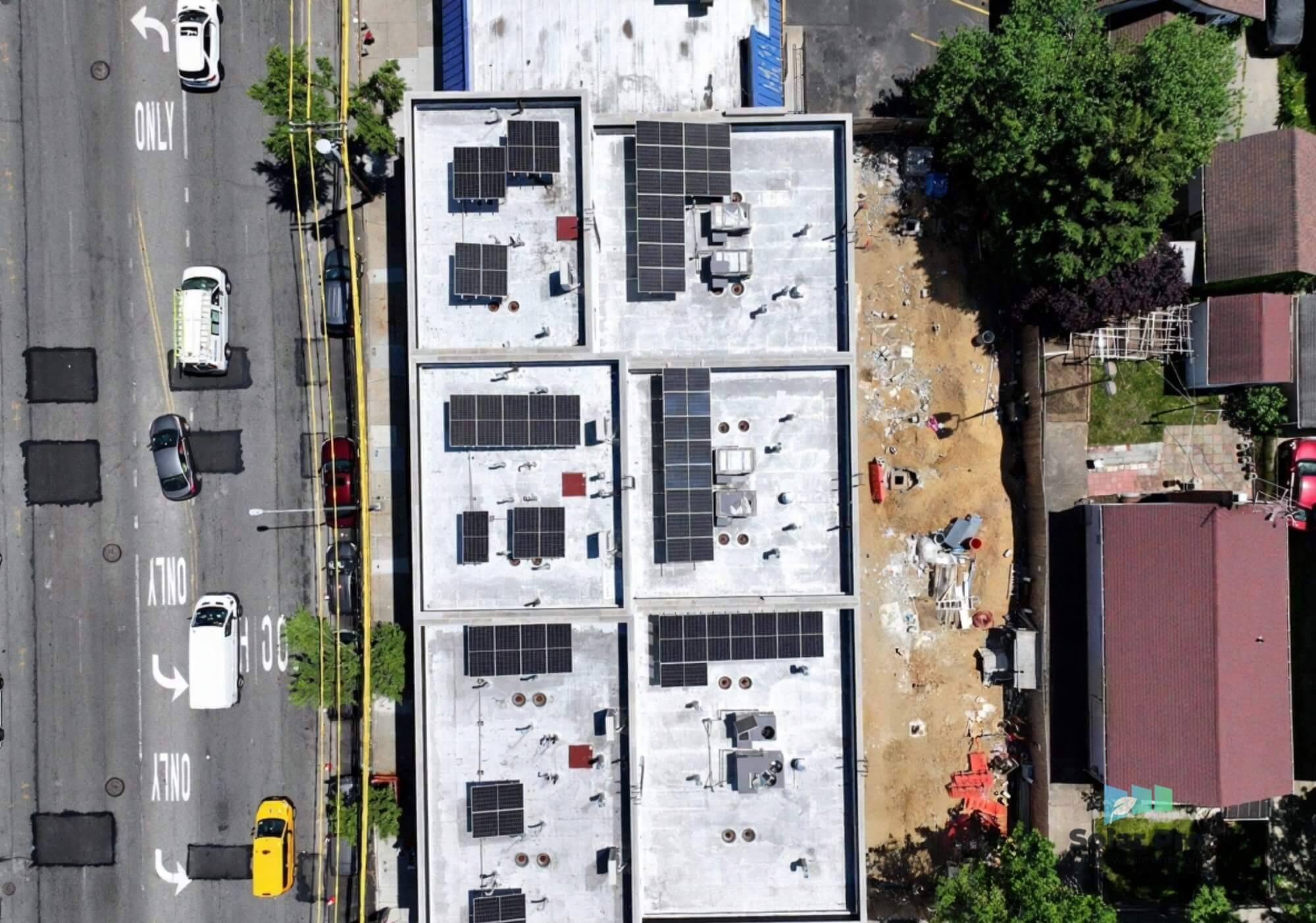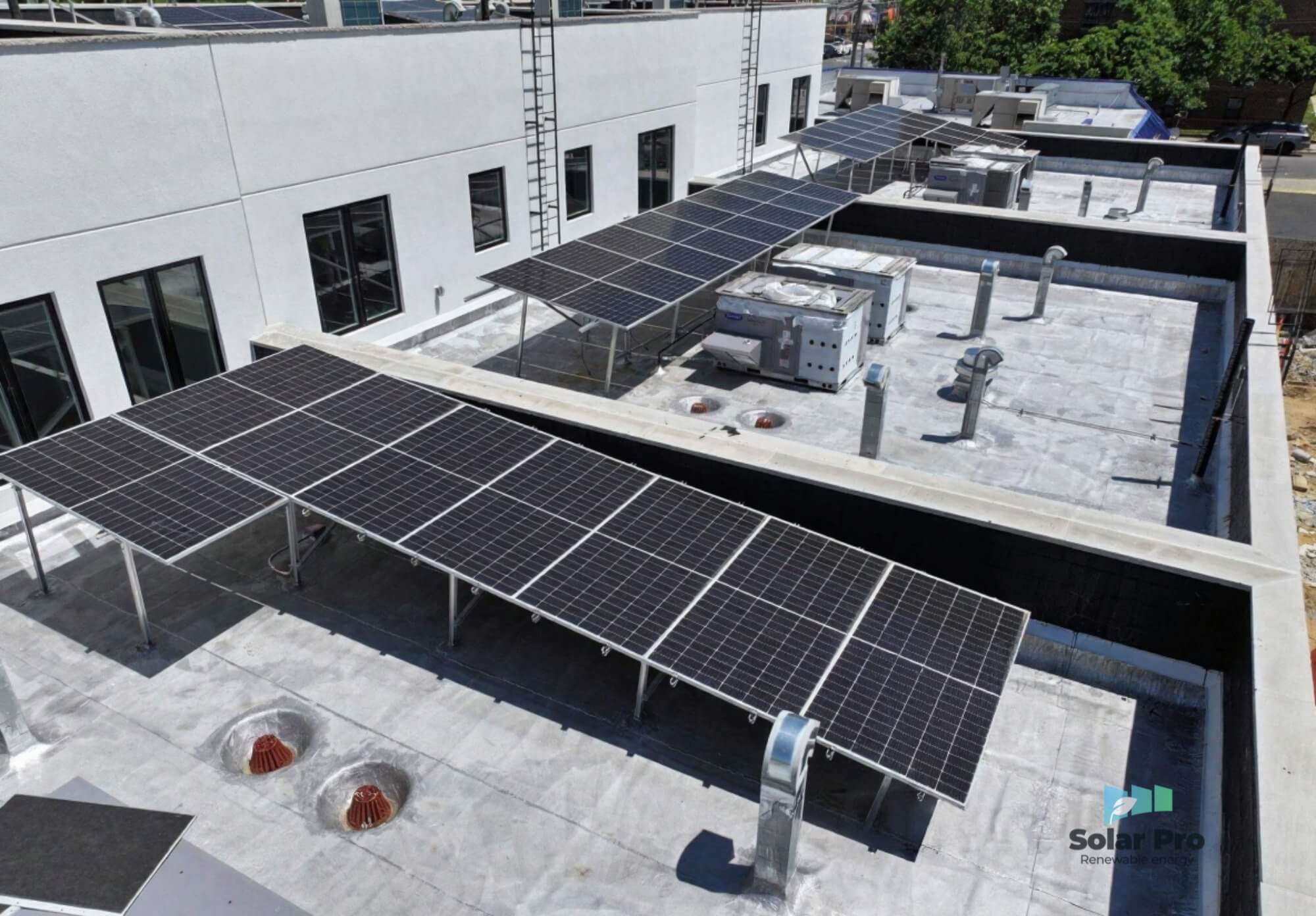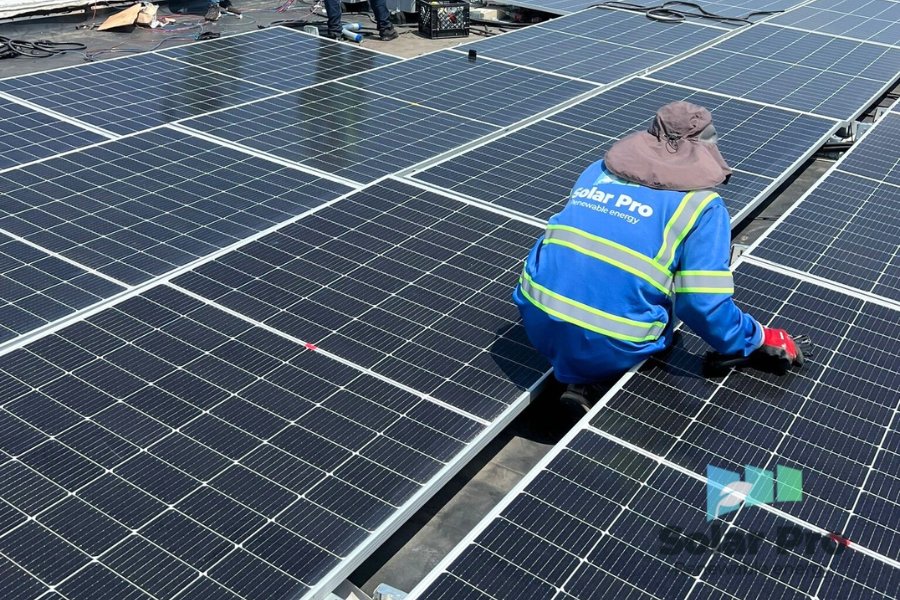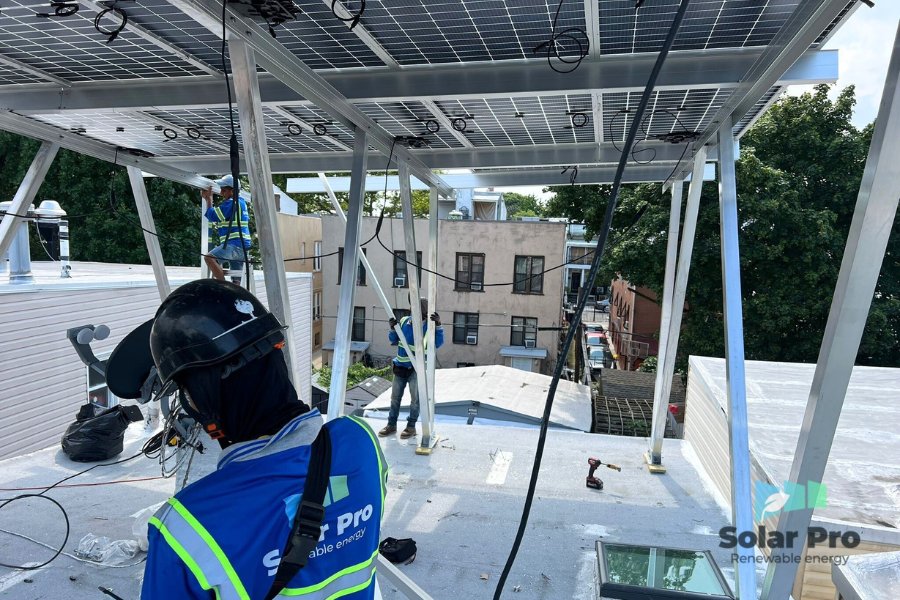Commercial Solar Panel Installation in NYC
- Protection from energy rate hikes
- 25-year warranty
- Commercial solar panel permits



Starts From
$20,000
Up to
$100, 000
in savings
$0
down financing
25-year
warranty
1. Consultation
Discuss your energy needs and assess your property.
2. Custom Design
Custom solar design tailored to your business.
3. Permitting
Handle all necessary permits and paperwork.
4. Installation
Install your solar panels and related equipment.
5. Inspection
Verify system safety and performance standards.
6. Activation
Turn on your system and start generating solar power.
new york state solar
income tax credit
for every kilowatt (kW) of
solar power installed
back on installations between 2022 and 2032
Commercial solar panel permits and permitting requirements in New York City vary by industry, and Solar Pro manages permits for businesses across all sectors.
For solar panels for factories and warehouses, building and electrical permits must be granted to assure the structural and safety standards are met. Major installations must go through environmental review under SEQR. (New York State Environmental Quality Review.)
Solar panels for stores and shopping centers require building and electrical permits, with additional reviews for historic or aesthetic compliance. Retailers may be eligible for NYC’s Property Tax Abatement for installations.
The typical requirements for office buildings are zoning approvals in addition to standard building and electrical permits. Integration with existing systems must meet NYSERDA’s codes.


Understanding the cost of commercial solar panels is crucial for making a smart investment decision. While most installations start around $20,000, the key for business owners is to know how quickly the payback period is on their ROI.
Many businesses reduce their initial investment by up to 30%, accelerating the time it takes to see a return.
See our full NYC solar panel pricing breakdown here.
5 Star Rating
Most commercial roofing types can have solar panels installed on them. However, feasibility largely relies on condition, material, and structure. Flat or slightly sloped roofs made from materials like metal, rubber, or gravel are ideal. Roofs with less common materials, or those with structural limits, may require special mounts or extra structural support. This is because a roof must be evaluated by a professional to safely support the weight and structure of solar panels.
Absolutely, commercial solar is worth it. Not only can solar panels greatly reduce your energy expenses, but they also provide long-term financial and environmental benefits.
For example, in 2023, the average U.S. commercial building consumed an average of about 22.5 kilowatt-hours (kWh) per square foot annually. For a 16,000-square-foot office building, this equates to approximately 271,000 kWh per year at a current approximate cost of $19,000 annually.
Business owners can offset upwards of a large portion of their energy consumption with solar and save upwards of thousands of dollars annually. Savings that could add up over time to substantial amounts, such as $150,000 or even more in two decades. Also, the incentives offered-such as the 30% Federal Solar Tax Credit and MACRS depreciation further bring upfront costs down and speed up payback.
It further shields the business world from the ever-growing electricity rates. In such a case, energy costs become more predictable, and payback periods are quicker, ranging between 3 to 7 years.
Commercial solar panels have a typical lifetime of 25 to 30 years. During such a period, most manufacturers offer warranties for their performance. While losses in efficiency throughout the life of solar panels do take place, this usually occurs very gradually, at about 0.5% to 1% per year. That means after 25 years, the panels can still generate power at about 75% to 85% of their original power output.
With proper maintenance and care, solar panels can last well beyond their warrantied lifetime and conceivably function effectively for upwards of 30 years.
The exact number of solar panels would vary based on the energy consumption of a commercial building and the kind of solar panel being used. Most small- and medium-scale businesses usually require solar systems that range from 50 kW to 200 kW. For example, a company that averaged an electric bill of $600 a month would require a 50 kW system, which is estimated at 157 solar panels-assuming each panel is 330 watts. To place these panels, you would want about 3,061 square feet of roof space.
These are approximate values, and the panel count may vary on many factors, including panel efficiency and energy consumption of the building. We can give a more specific calculation by analyzing all the factors.
Commercial solar panels are usually in the range of 300 to 500 watts of electricity by using different efficiencies of the panel. For example, a 400-watt panel would produce roughly 1.6 kWh per day if the conditions were perfect with an ideal amount of about 4 hours of peak sun. Indeed, output can vary depending on location, the exact orientation of the panel, and any specific conditions around the site, such as shading.
This is a pretty standard range for commercial systems panels, which are designed to be more powerful than their residential market counterparts.
Installation tends not to disrupt business very much. We can also try our best to work around your schedule. Since solar panels are on the roof, it’s usually not very disruptive.
Most of the work, which involves mounting panels on the roof, wiring, and interconnection to the grid, is outside of your business premises. Installation teams schedule the work in a manner that tries not to conflict with the daily activities of your operation. Installation time ranges by system size, but many commercial projects are completed within several days to a few weeks.

Make the smart choice for your wallet and the environment by switching to solar energy. Contact us now to learn about our solar solutions.